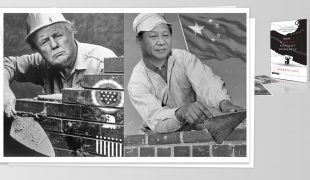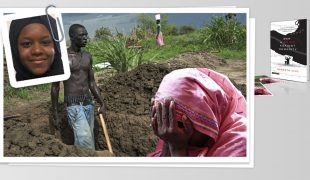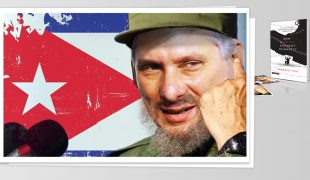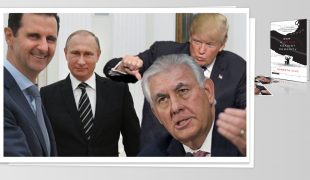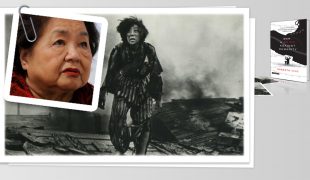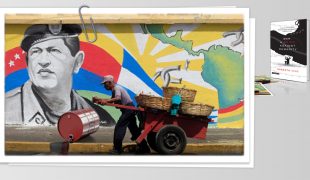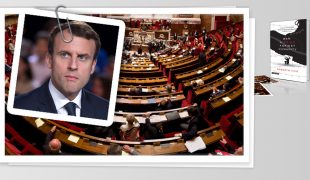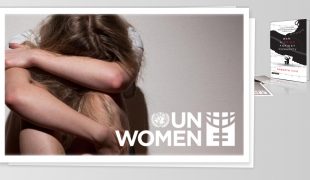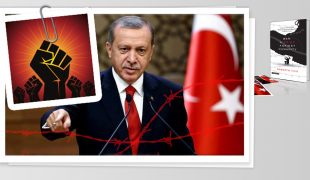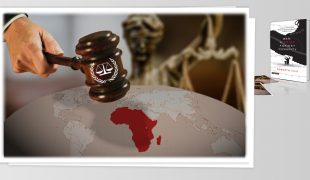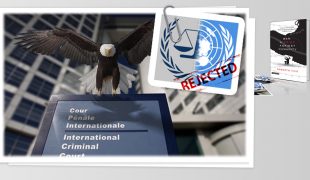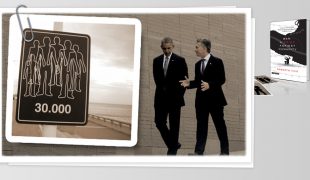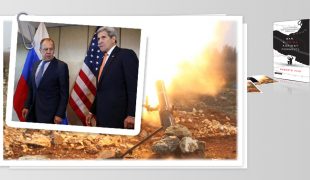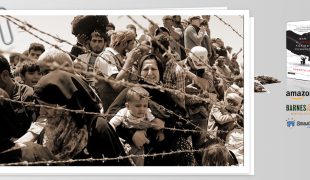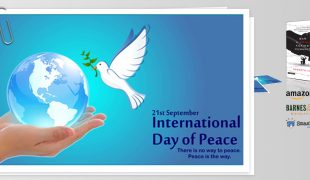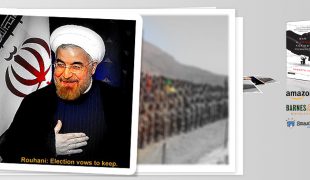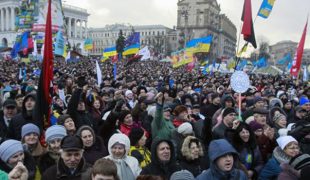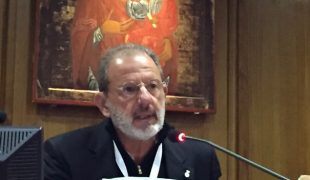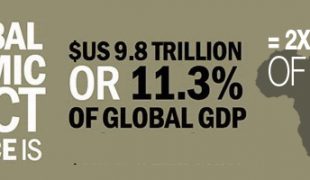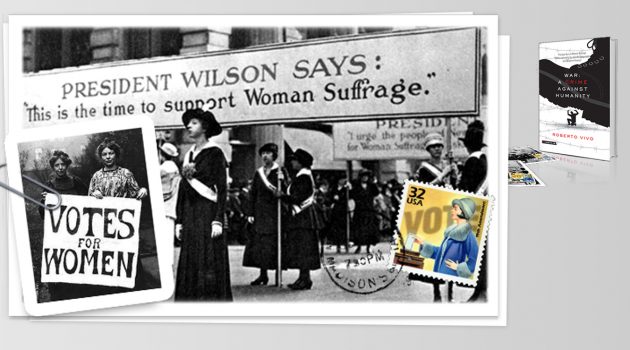
Women’s Rights: Equality starts with The Vote
This month marks the 97th anniversary of women’s suffrage in the United States of America. Although long considered the framework model for much of Western democracy, the US only granted the vote to its female citizens in 1920, ratifying a women’s suffrage amendment to the Constitution on August 18th of that year. And it was hardly a right justly recognized and bestowed upon women out of a progressive sense of democratic constitutional correctness. It was, rather, a hard-fought right won through the tenacity and sacrifice of a handful of women leaders who little by little convinced a huge following to back their demands for what should have been rightfully theirs from the outset: the right to an equal voice in choosing those who would govern and make the country’s laws.
It would take eight decades of struggle for American women to win the right to vote. And the means by which they pursued that civil right provides an exemplary case study of peaceful protest and non-violent citizen activism.
A women’s suffrage movement began to emerge as early as 1840, but it wasn’t until 1848 at the country’s first women’s rights convention held at Seneca Falls, New York, that a resolution was passed calling for an organized campaign to advocate the right to vote. Even then, there was considerable opposition to the resolution, since a number of women at the convention considered suffrage a radical idea, despite being actively involved in asserting and defending women’s rights.
These divisions would carry over for decades even after the budding feminist movement began to develop pro-suffrage organizations. The prolonged feud between the two most prominent nationwide groups—one led by Susan B. Anthony and the other by Lucy Stone—was the clearest manifestation of this problem of disunion. Both formed after the Civil War in 1869, it would take the two organizations until 1890 to put aside their differences and merge into what would be known as the National American Woman Suffrage Association (NAWSA), with Anthony as its leader.
But that didn’t keep American suffragists from employing highly intelligent and creative means to establish, in de facto fashion, the very right that they were being denied. Besides resorting to more traditional forms of protest—demonstrations, picketing of public buildings including the White House, serving jail time and rebelling while incarcerated by staging hunger strikes—they also took the unprecedented step of going to polling places and demanding to be allowed to vote. When voting officials refused their demands, they would then sue for their civil rights in court.
The ultimate goal of these actions was to eventually have their case brought before the US Supreme Court in the hope that denial of women’s right to vote would be declared undemocratic and, ultimately, unconstitutional. And that’s eventually what happened, except that the country’s highest court ruled, in an 1875 decision, against the suffragists, arguing that the Fourteenth Amendment—establishing basic citizens’ rights and cited by counsel for the suffragists’ cause—did not specifically establish the right of women to vote.
This led the women’s suffrage movement in general to focus, until after the turn of the century, on local and state by state voting rights for women, which eventually brought positive results in several states of the union. But in 1916, a highly militant suffrage group led by Alice Paul formed their own political arm, the National Women’s Party (NWP), and took an entirely new tack by seeking to amend the Constitution rather than to prove the constitutionality of women’s voting right within the context of the Constitution as it stood. For their trouble, Paul and many of her followers ended up being imprisoned and suffered the indignity of force-feeding among other humiliations and privations, treatment that ultimately made them impossible to ignore, eventually prompting the by this time millions-strong NAWSA, now led by Carrie Chapman Catt, to take up their cause and push for an amendment granting women the right to vote.
That right was granted after three long years of congressional debate in 1920 in the form of the Nineteenth Amendment to the US Constitution that reads simply: “The right of citizens of the United States to vote shall not be denied or abridged by the United States or by any State on account of sex.”
The US wasn’t, however, the earliest pioneer in the achievement of women’s suffrage. The right for women to vote was a long-standing 19th-century issue in New Zealand even before it came to the fore in the US.
As a British colony, New Zealand was bound by the same restrictions on women’s participation in politics as were predominant in European society. But the colony boasted a very strong liberal democratic philosophy within a highly reduced population. By the time the issue of universal suffrage was being seriously debated in government, petitions in favor of it had actually garnered the signatures of one in four Europeans in the territory.
Of major influence in the early campaign for women’s suffrage in New Zealand were the tenacious efforts of Anne Ward, head of the NZ colonial branch of the Women’s Christian Temperance Union. But the writing of England’s John Stuart Mill—one of the foremost figures in the history of liberalism and a firebrand for individual freedoms—was also strongly influential. Mill’s contribution to women’s suffrage was particularly strong thanks to the inspiration he drew from his second wife, Harriet Taylor Mill, herself a renowned political and social philosopher, and a major voice for women’s rights.
In stating their case, women suffragists argued that the addition of women to the political mix would bring a new higher standard of ethics and morality into play. Opponents countered that the woman’s place was in the home and that allowing women to enter politics would undermine home and family. But women’s advocates rebutted that it was precisely through an active interest in politics that women would be able to help provide protection to and promotion of family values.
As a result of the tireless efforts of later suffragists like Kate Sheppard, Catherine Fulton and Mary Ann Müller, women were finally granted the right to vote in New Zealand in September of 1893, nearly three decades before American women’s voting rights would be recognized. Women were still banned, however, from holding office in New Zealand. Nevertheless, New Zealand women were not about to quit the fight for their rights until the fight was done, and in that same year, Elizabeth Yates was to become the first woman in the entire British Empire to win a mayoral post. She was elected to head the government of the New Zealand city of Onehunga (which today forms part of Auckland).
A year before women won the right to vote in the United States, three women were already standing for election to the lower house national legislature in New Zealand. It would take another decade and a half, however, for a woman to actually be elected to government, when in 1933, Elizabeth McCombs successfully ran for and won her late husband’s seat in the House of Representatives.
Once that glass ceiling had been smashed, other women were elected to the lower house of NZ Parliament in 1938, 1941, 1942 and 1943 from a variety of parties—the Reform Party, the National Party and the Labour Party.
The justice that New Zealand’s women sought and won in the 19th and 20th centuries also led to some other significant civil rights advances in that country. Here are a couple of prominent examples: Margaret Magill had already made a mark as an out-of-the-closet lesbian who served as both a teacher and an administrator in the New Zealand education system. But in 1926, she advanced even further on these achievements by running for and winning a seat on the Executive Board of the New Zealand Educational Institute (NZEI). Iriaka Ratana, for her part, in 1949 became the first native Maori woman ever elected to the New Zealand Parliament. And while the United States has yet to elect a woman head of government, New Zealand boasts two: Jenny Shipley (1997-1999) and Helen Clark (1999-2008).
The first country to grant full political rights to women, however, was Finland. This landmark decision came in 1906, prior to the founding of the Republic of Finland, when the country was still part of a monarchy. The measure granted women both the right to vote—making Finland the second nation in the world (after New Zealand) and the first one in Europe to do so—and the right to run for office. The world’s first women members of parliament were elected to the Finnish legislature the very next year.
One of the reasons that suffrage was slow to take hold as a major social conquest topic in the US prior to the Civil War was its link to anti-slavery abolitionist liberals. Ironically, while many abolitionists also supported and even rallied for women’s suffrage, another main school of thought in abolitionism held that involvement in radical political activism drew potentially damaging attention to abolitionists as a whole, thus hindering the movement’s hands-on work, such as that done by the “underground railroad”—a militant organization that helped slaves escape from slave-owners in the South to anti-slavery northern states. Furthermore, many leading abolitionists, though sympathetic to the justice of equality, were Quakers, whose religion prohibited them directly from taking part in secular politics.
With the passage of the Fifteenth Amendment to the US Constitution in 1869, just four years after the bloody war against slavery ended, African American men were granted the right to vote and denying that right on racial grounds thus became unconstitutional. But by not adding a prohibition against suppressing voting rights on the basis of gender as well, the US was, women’s suffrage leaders like Susan B. Anthony posited, creating an “aristocracy of men” that disenfranchised women entirely.
Worldwide advances in the struggle for women’s suffrage have continued throughout the decades of the 20th and 21st centuries to date. It may prove surprising to many that the last nation in Europe to grant women full political rights was Switzerland. Women in that country didn’t obtain voting rights until 1971, and the last jurisdiction in Europe to grant women’s suffrage was the Swiss canton of Appenzell Innerhoden, in 1991. Even at local cantonal level voting rights were only very gradually provided to the country’s female population over the course of three decades, from 1959 to 1991. Long a Western ally that, unfortunately, shares scarcely any of the West’s stated ideals regarding democracy and individual rights, Saudi Arabia only granted women limited (municipal) voting rights in 2015.
Although it can be argued that women’s full voting rights in certain countries around the world are limited to some degree (proof of literacy, property, etc.), Saudi Arabia is only one of two recognized countries in the world where women can’t vote at a national level. The other one is the Vatican, where only men are granted political rights.
For all the lip service paid to democracy in the West and other parts of the world, then, women, who form roughly half of the global population, were long (and still often are) treated like less than second-class citizens, and it can safely be stated that most of the political and social aberrations whose effects the world has suffered, and still today suffers have been visited on it by male political leaders and male voters. Women are only now gradually sallying forth out of historical obscurity into the political foreground. And they will need to shrug off the predominant influence of their male counterparts and bring their own creative political, ethical and human values into play in order to demonstrate how, once they’ve gained a truly equal footing, they can change the world and make it a safer, more unified, more humane and infinitely more socially progressive place to live.









